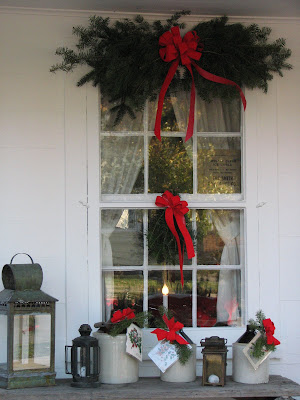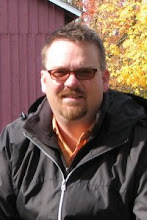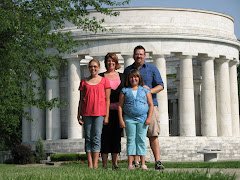After scraping the ice and slush off the drive, sidewalk, and front approach, I treated the girls to
BG's best hamburg at Corner Grill; then we were off to the Wood County Historical Center and Museum for some icy photos.
In reviewing the photos I took last Friday, I noticed something Abbey-
esque. In the same way that the reader of Edward Abbey's homage to nature and seasonal park
rangering,
Desert Solitaire, would not be apprised to the historical reality that he was not alone, from the following photos, it would appear that I was alone. In this same way, I have obscured the historical fact that Jessica and Emily were with me all the while. The following photos were shot "on the fly" (using in-camera tricks) and have not been manipulated with any photo editing software.
I hope you enjoy your
vitual holiday tour of grounds of the Wood County Historical Center and Museum:

Front entrance. The stone arches and walls gracing the complex were completed using resident labor during the 1920s

East entrance, looking toward the Portage River.

The Pest House. Nest door to the former Lunatic Asylum. Those with communicable diseases would stay here.

Evergreen in icicle.

Mini light encased in an icy sheath.

A calm place to think icy thoughts.

Ben: an homage to the Museum's farming tradition.

Front entry of the former county home. This area was mainly used by staff and guests, not residents, or patients, or both. The Wood County Poor Farm was in operation as a poor farm from 1869 to the 1950s. From the 50s on, it's main use was a nursing home for the elderly. It was closed and slated for demolition in 1971, when a group of concerned citizens proposed a new use. After extensive renovation and preservation, the county home reopened as the Wood County Historical Center and Museum in 1975.

The Staff Dining Room, decorated for the holidays.

Wall sconces in the main entrance. Notice the delicate shadows made by the intricate cuts in the crystal.
NC
 Song Sparrow nest in the flowering plum in my front yard. It has been fun to watch the sparrows return to this nest the last two years. I also have a couple bird houses in this same area of my yard that get used annually.
Song Sparrow nest in the flowering plum in my front yard. It has been fun to watch the sparrows return to this nest the last two years. I also have a couple bird houses in this same area of my yard that get used annually. Ice-covered Holly.
Ice-covered Holly. White pine in ice.
White pine in ice. Front entrance. The stone arches and walls gracing the complex were completed using resident labor during the 1920s
Front entrance. The stone arches and walls gracing the complex were completed using resident labor during the 1920s East entrance, looking toward the Portage River.
East entrance, looking toward the Portage River. The Pest House. Nest door to the former Lunatic Asylum. Those with communicable diseases would stay here.
The Pest House. Nest door to the former Lunatic Asylum. Those with communicable diseases would stay here.

 A calm place to think icy thoughts.
A calm place to think icy thoughts. Ben: an homage to the Museum's farming tradition.
Ben: an homage to the Museum's farming tradition. Front entry of the former county home. This area was mainly used by staff and guests, not residents, or patients, or both. The Wood County Poor Farm was in operation as a poor farm from 1869 to the 1950s. From the 50s on, it's main use was a nursing home for the elderly. It was closed and slated for demolition in 1971, when a group of concerned citizens proposed a new use. After extensive renovation and preservation, the county home reopened as the Wood County Historical Center and Museum in 1975.
Front entry of the former county home. This area was mainly used by staff and guests, not residents, or patients, or both. The Wood County Poor Farm was in operation as a poor farm from 1869 to the 1950s. From the 50s on, it's main use was a nursing home for the elderly. It was closed and slated for demolition in 1971, when a group of concerned citizens proposed a new use. After extensive renovation and preservation, the county home reopened as the Wood County Historical Center and Museum in 1975. The Staff Dining Room, decorated for the holidays.
The Staff Dining Room, decorated for the holidays.




